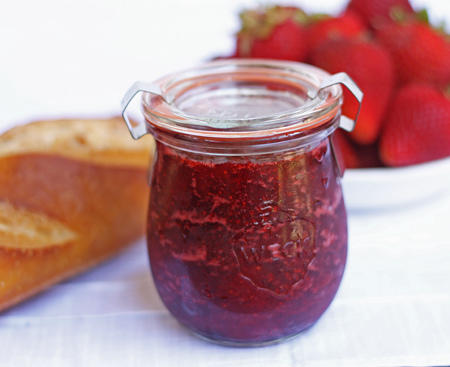
Section Branding
Header Content
Businesses Seek New Cottage Food Licenses
Primary Content

Georgia has relaxed its regulations on home-based food businesses, and the new rules were a hot topic at the state Department of Agriculture’s "Georgia Grown" symposium in Macon on Friday.
Until September of this year, the only way you could legally sell foods you made in your own kitchen was through a “non-profit exemption” that covered things like bake sales at schools and churches.
But dozens of small businesspeople crowded into a room at the Macon Centreplex to hear the department's Craig Nielsen explain what they now can and cannot do with a "cottage foods" license.
"Non-potentially hazardous foods can be produced in residential kitchens and sold at non-profit events, for-profit events like flea-markets, from their home and over the internet, provided that they cannot ship across state lines," Nielsen read from his Power Point slide.
Products can’t be sold across state lines, Nielsen said, because then they’d come under the purview of the FDA. The licenses are also contingent on the satisfaction of various inspection and training requirements.
Lea Nelson, who attended the presentation, operates a family farm store in Twiggs County and says she’s excited she may now be able to sell prepared foods without building a commercial kitchen.
"My mother, my grandmother, myself, we have a long tradition of preparing jams and jellies," Nelson said. "My dad makes a great barbeque sauce."
But Nelson learned from the presentation that she can’t sell barbeque sauce; the rules governing what can and cannot be made in a home kitchen are extremely complex.
What does the state consider potentially hazardous? Vinegar is not but barbeque sauce is, pound cake is fine but not red velvet cake if it has cream cheese icing, etc. The audience was a bit bewildered, but all the rules are on the web.
37 states have now legalized this type of food production, in part Nielsen says, because of the down economy.
Tags: Georgia Department of Agriculture, small business, Georgia Grown, Adam Ragusea, cottage foods
